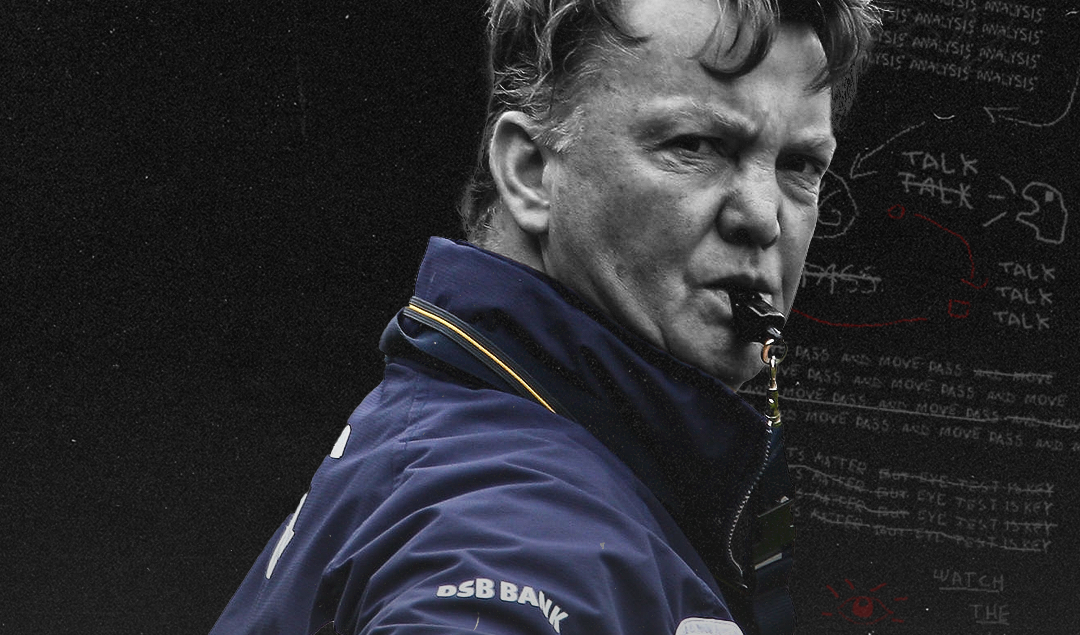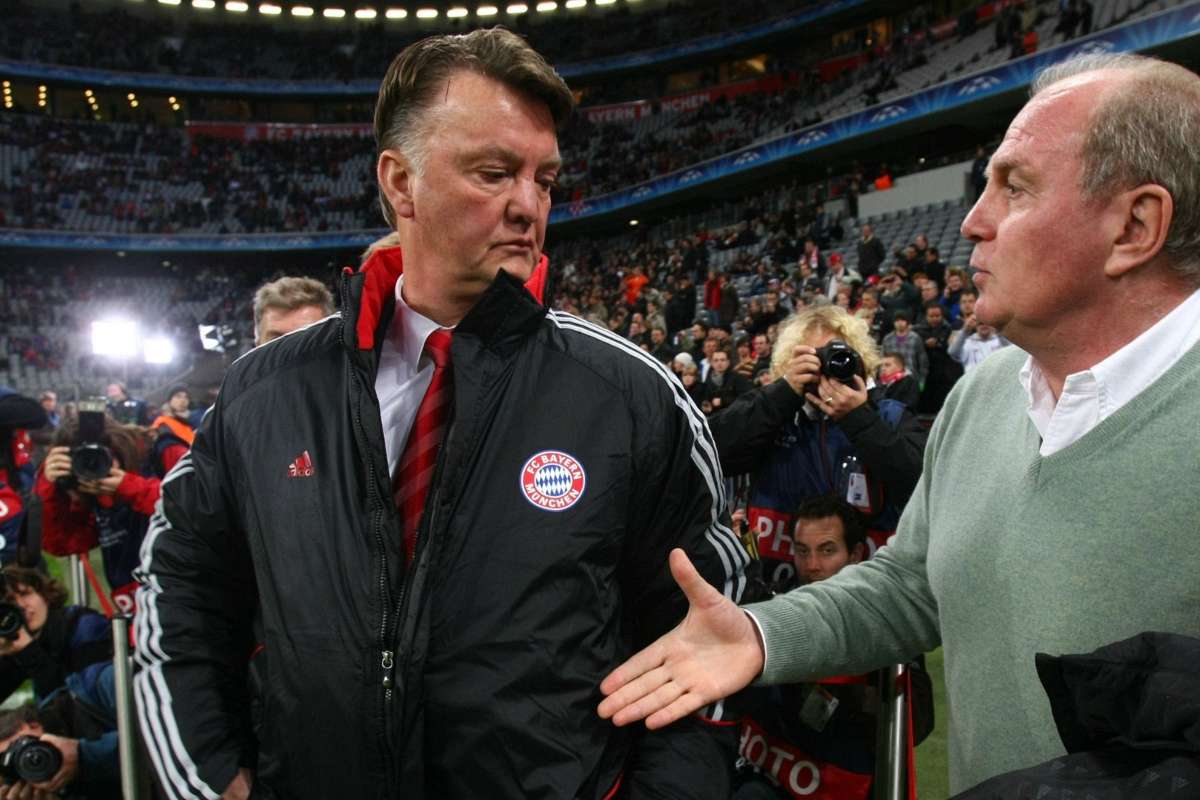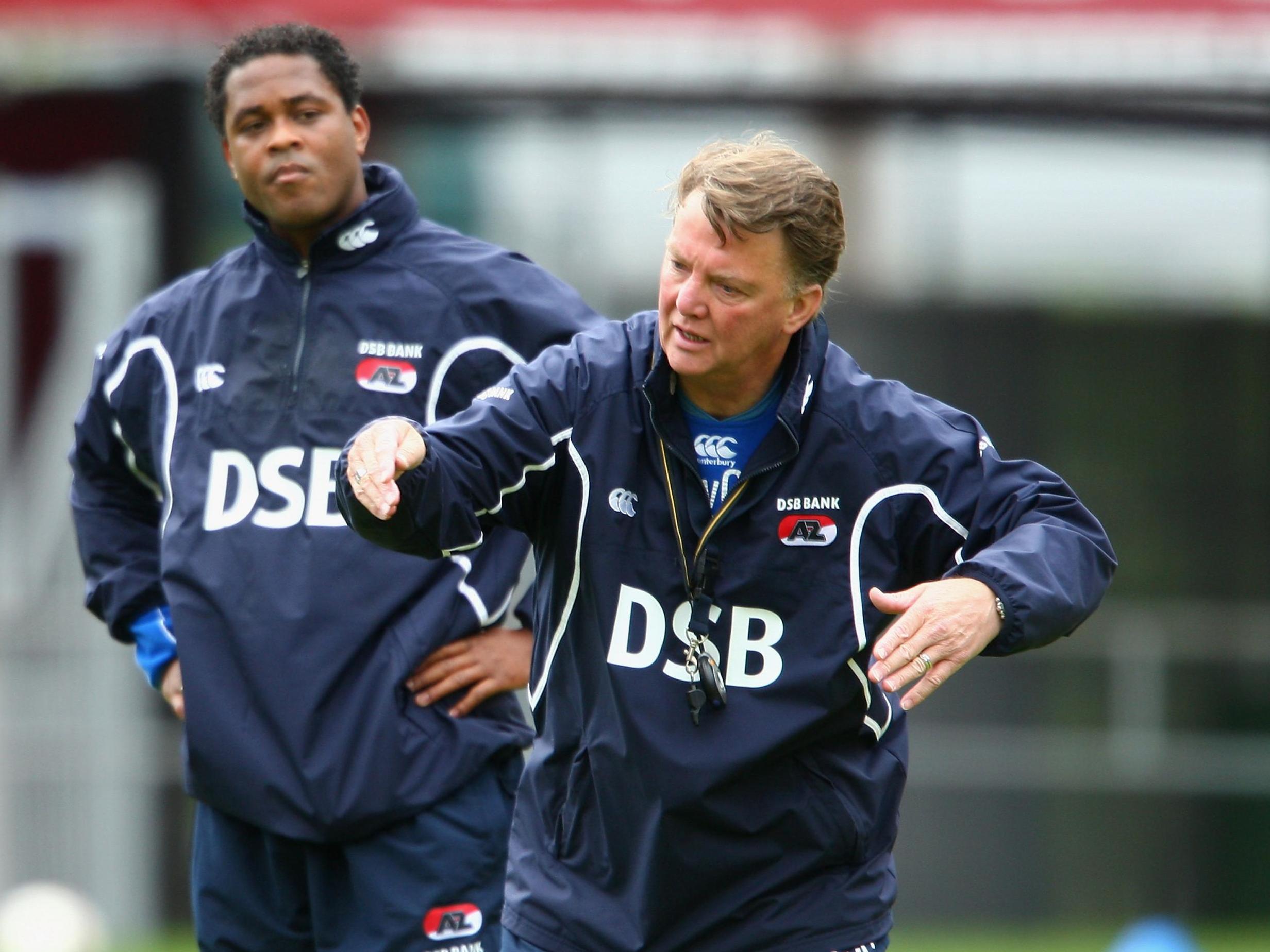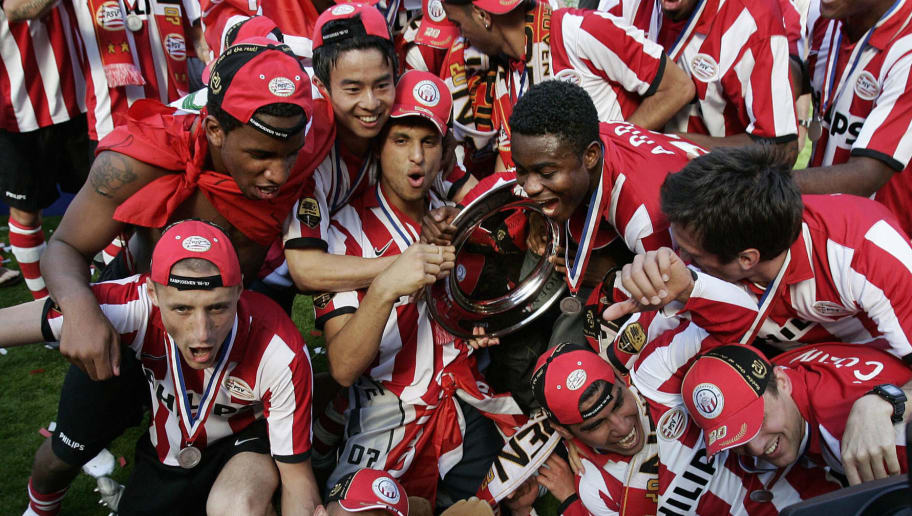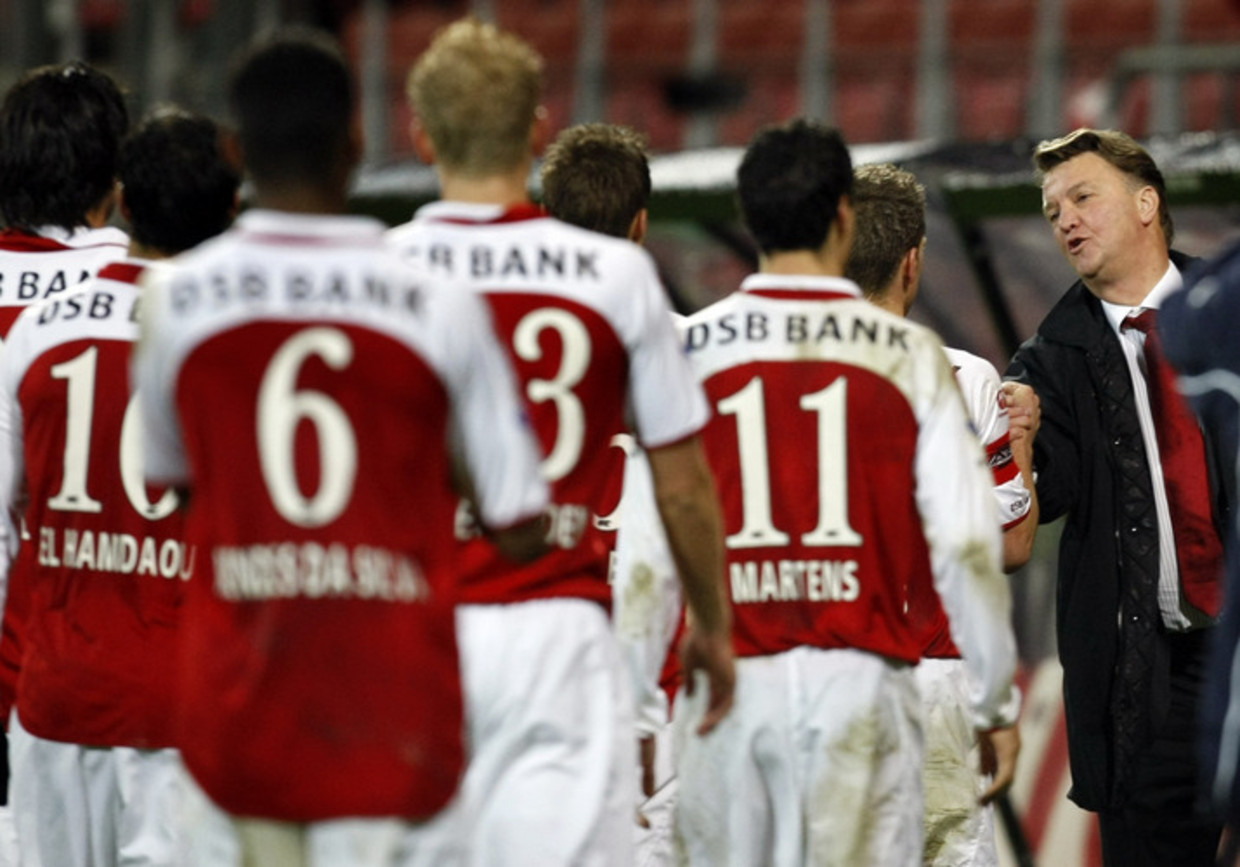The Redemption of Louis van Gaal at AZ Alkmaar
What can be said about Louis van Gaal? The legendary Dutch manager is a winner; a visionary; a stern pragmatist. No matter what way one looks at him, his brilliance precedes his arrogance, for success was never too far away from him.
Early in his managerial career, he changed the method at Ajax, forming a super club that would go on to dominate the European scene. Then, he was off to Barcelona for two stints. The first was fruitful; the second, disastrous. Bayern Munich and the Dutch national team followed, and they brought decent levels of success too, while he ended his virulent Manchester United tenure by winning the FA Cup in his final match.
But while trophies and winnings always stayed close to him, there’s a reason his attitude is often a matter of doubt to many. His first spell at the Nou Camp ended with rumours of a rift with the mercurial Rivaldo, while the Bayern Munich spell, despite winning the Bundesliga and leading the team to a Champions League final in 2010, resulted in his sacking due to a feud with president Uli Hoeneß.
Photo: Getty Images
The media, too, were a perennial foe for the Dutchman, as evident by his time at Ajax and Old Trafford. When it’s all said and done, though, there was one club where the firm manager was allowed to have it his way, where he achieved, perhaps, his greatest triumph: AZ Alkmaar.
On the face of it, describing Van Gaal’s time at AZ as his greatest is probably a little absurd, given that he won more prominent titles elsewhere as well as the Champions League with an Ajax side that consisted of several players who had only recently been bumped to senior football. But when looked at objectively, it can be seen why this period was important – not only for Van Gaal’s career, but also for Dutch football as a whole. So maybe if this four-year spell in Alkmaar isn’t his greatest, it most definitely is his most under-appreciated, for he changed the lives and careers of many, including his own.
Coming into the specific time period of Van Gaal’s appointment, it had been a difficult few years for the manager. After leaving Barcelona in 2000 having failed to win the league title, he struggled to implement his magic with the Dutch national side in 2002 which saw them fail to qualify for the World Cup.
He then returned to Barcelona but left almost immediately with the blaugrana sitting low in 12th. After that came the conflict with Ronald Koeman in his time as Ajax’s technical director and at this point, it wouldn’t have been too harsh to suggest that his career was dwindling away into irrelevance.
The great wins with the Amsterdam club as well as the league titles in Catalunya were nearly a decade ago, and if anything, he was proceeding on his glistening past rather that his ailing present. So when the time came with AZ Alkmaar, he had to grasp the opportunity with both hands. Having taken a short break away from football, a rejuvenated Van Gaal would have the chance to resurrect his career and his impact was almost immediate.
There was a complicated scene in the Eredivisie at the time as well. The big three of Feyenoord, Ajax and PSV Eindhoven had dominated the title picture for the best part of three decades, proving to be untouchable and in a league of their own.
For the others, coming close was a fine achievement, but the title would’ve been too far. So if anyone knew how to crack this complicated case, it would be the genius of Louis van Gaal, for he had done this several times previously, even if it was a long time ago. So for Van Gaal, what better place to redeem himself and to break this triopoly of dominance than the club where he ended his playing days?
In his first season, he laid the marker for what he wanted from the club, his players and what the fans should expect. Up against the odds with the big three having a far greater budget than his AZ side, the club continuously punched above their weight, and although they couldn’t construct a formal title challenge, they laid the foundations by finishing second, 10 points behind champions PSV.
At this point, the future looked bright. It had been a long time since someone came close to challenging for the title, and although 10 points is a fair way off, it went a long way in boosting the morale at the club.
Photo: Bongarts
And if the last year was a sign of progress, the next would see them maintain consistency and sustainability, albeit with extreme heartbreak at the end of it. They performed exceptionally well for major parts of the campaign – including a stunning 8-1 home win in the start of the campaign against NAC Breda – whilst also putting the likes of Heerenveen, FC Utrecht and Groningen to the sword in convincing fashion. And while those wins were particularly impressive, the main concern, and eventual downfall of the side, came due to their failure to win in the big games – especially against the big three in Dutch domestic football.
In the six league games against Ajax, Feyenoord and PSV, they won just once – a crucial away success in Eindhoven, but that wasn’t title-winning form, as they would see later in the season. They had done well to get to the final matchday of the season in the driver’s seat, and with hand on the title and a match against relegated Excelsior to come, it was fair to say that party-planners in Alkmaar were busy in April 2007.
Going into the final matchday, the stipulation for AZ was simple: win.
They were level on points with Ajax and PSV, but had a superior goal difference of 53, compared to 47 and 46 respectively for the other two. But, in the fashion that had been quite familiar with AZ over the last few decades, they would succumb to their complacency.
In the 15th minute of their match against Excelsior, they went a man down following the sending-off of goalkeeper Boy Waterman and that would be the start of a horrible afternoon. They would end up losing the match after a 3-2 loss, conceding the winner in the 90th minute to lose the title in heart-breaking fashion.
But while there was disappointment in Rotterdam where AZ were playing, there was drama and elation in Eindhoven. The Eredivisie would be decided on goal difference, with PSV coming out as the winners of the league, despite coming in with a more inferior record than their two challengers.
Ajax won 2-0 in their match, which would ideally have been enough, but an unhinged PSV side thumped Vitesse 5-1 to gazump the Amsterdamers and win their second championship on the trot in one of the greatest league finales in recent memory.
Photo: Getty Images
What started as a day of expected celebration in Alkmaar ended as the resumption of joy in Eindhoven. Louis van Gaal’s team had thrown a historic title win away, and if that wasn’t enough, they would add further fuel to the fire that was their “chokers” tag.
In the KNVB Cup, a tournament they hadn’t won since 1982, they were almost flawless in the run-up to the final, scoring 33 times across five matches on their way to the final – including another pounding of NAC Breda with a 6-0 success in the semi-final. In the ultimate match, though, they would lose to Ajax in a penalty shoot-out, this coming just a week after their grand botchery in the Eredivisie.
For AZ that season, it was a story of so close yet so far on several occasions. They were entertaining, scoring goals domestically and in Europe at free-will, but it was just a few results that let them down. They scored the second-most goals in the league – more than the champions, too – and were unstoppable in the cup, but just couldn’t make it count when they needed to the most.
Even in the UEFA Cup, they showed their strengths by overcoming the likes of Sevilla, Newcastle United and Fenerbahçe, but fell to Werder Bremen in the quarter-finals in a second-leg where they weren’t half as competent as they were in the first fixture.
It was a season to remember for the wrong reasons, but it so should not have been. In the off-season, star names such as Tim de Cler and Shota Arveladze departed the club after failure to secure qualification for the UEFA Champions League, and this campaign was a stark contrast to the previous one.
With vast promises made by manager and owner, Dirk Scheringa, there was further optimism that this could finally be AZ’s year. Despite losing some of their best players, the club were still active in the transfer market, bringing in the likes of Sergio Romero, Ari and Graziano Pellè, amongst others.
However, talk and actions off the pitch could not translate to results on it. The club were knocked out of the KNVB Cup in the first round, falling to minnows SC Cambuur, while they failed to make it past the group stages in the UEFA Cup. In the league, too, they were inconsistent and a far cry from the team that had challenged for the title a year ago.
Even the January purchases of defenders Héctor Moreno and Simon Poulsen couldn’t help them as they were embroiled in a mid-table battle, trying to obtain a spot for UEFA Cup qualification for the following season. In the end, they finished 11th, ruling out any possibility of European football.
But that too came with its typical AZ and Louis van Gaal drama. The empty promises and constant failures on the pitch angered many and rumours were rife that the manager was set to leave the club in the middle of the season but was prompted by several of the players to stay, for they had seen the positive impact he had on their careers.
Photo: Getty Images
Even though they weren’t winning much, Van Gaal could see that he still had the players on his side and that they were willing to give it their all to turn the tables. For that reason, he started experimenting more and giving greater chances to see if he could conjure up something wild for the following campaign.
That was the first of two turning points in Van Gaal’s sojourn at AZ Alkmaar. The second came early in his fourth campaign. After being active in the transfer market with several signings, including the significant one of Finnish centre-half Niklas Moisander from FC Zwolle, AZ started the season slowly again, and that set off a new desire to succeed, instead of putting them down.
It is, however, important to understand the circumstances here. The club were in a difficult position and were growing to become incredibly dislikeable in the Netherlands, mainly for their frequent spending and also for the antics of the man at the helm.
Van Gaal would often refuse to take the blame for his team’s let-downs, going as far as blaming the Dutch media while also adding the usual spice of turning the tables on the FA and its referees. But while that was a constant in his press conferences, never once did he throw his team under the bus, and that showed his boss, Dick Scheringa, that there was faith between the playing and coaching staff which most likely helped the manager keep his job, despite cries from fans to pull the trigger. This second moment that saw him turn his career around was inspirational, for if it weren’t for this, Van Gaal probably would have called it a day much earlier than he actually ended up doing.
Following successive defeats in their opening two games where they conceded five and scored just one, AZ came up against champions PSV and it was a motivational team-talk before the game that led to a shock 1-0 win. What was often reported to be his final game in charge of the club ended up being one of his finest victories, and they would only continue to grow from there.
The Louis van Gaal philosophy was in full flow and the team would score goals for fun, embarking on an unbeaten run until April, when they lost 2-1 to Vitesse. Amazingly, that loss hardly mattered because they were crowned champions that afternoon with their rivals’ Ajax’s result going into their favour.
Their inconsistency to overcome the top teams often held them back previously, but that wasn’t to be the case this time. Van Gaal had ditched the pragmatic style that he had become so famous for over the years, instead adopting a more progressive, free-flowing, counter-attacking style that would work best with the talents of his players.
The big three would all suffer the wrath of this incredible team as they would complement their exciting attacking football with a strong defensive side, conceding just 22 times across 34 games and winning the league by a mammoth 11 points. It came to a point where losses hardly mattered towards the end, as their dominance was unmatchable.
Photo: ANP / Marcel Antonisse
And the team was a pure joy on the eye, well-constructed and well-thought by the manager. In goal, Sergio Romero would be immovable, and it was this spell in the Netherlands that would see him forge a career of becoming one of the most reliable goalkeepers for several clubs in Europe.
He would later come back to haunt his manager in the semi-finals of the 2014 World Cup following his heroics for Argentina against the Netherlands, before joining his mentor at Manchester United a year later. This signing was often scrutinised in the start, but in 2009, his value was well-appreciated as he became one of the most exciting goalkeepers in Europe.
In front of him, the guile and grace Kew Jaliens and Héctor Moreno formed a tough pairing in the heart of defence, and they were flanked by Niklas Moisander and Gill Stewarts, who were often a key support to the side’s attacking tendencies with their forward runs and impeccable crossing. It was the front-line that caught their eye, though.
The likes of Stijn Schaars, Demy de Zeew and Maarten Martens would form one of the most attractive midfields in Europe, while a young Mousa Dembélé would hone his skills here which would help him become one of the most polarising players in the modern era in the Premier League.
These players will always have Louis van Gaal to thank in their careers and that sentiment can be shared by Mounir el Hamdaoui and Graziano Pellè, the forwards that made the dream come true. For 28 years, the domestic league was dominated by Ajax, Feyenoord and PSV Eindhoven, but Louis van Gaal would give hope to the other sides in the country.
The iconic manager was highly in praise of his players and, unsurprisingly, himself in the club’s ecstatic celebrations that went on for long in the streets of Alkmaar, but it’s also worth taking note of the effort and guile of owner Dick Scheringa, who had patiently waited for this moment.
“This is great for the players. For me, personally, this championship will be my greatest little masterpiece.” – Louis van Gaal on AZ Alkmaar’s title success
The owner was willing to take a risk by appointing a manager whose recent track record would’ve thrown any club off, and then invested adequately to support the man at the helm, despite endless calls to give him the sack. The reward was fruitful for him, and if anything can support the idea that Van Gaal’s work was inspirational, then it’s the fact that they haven’t been able to mount a strong title charge since the 2009 victory.
Perhaps, this goes to show what good a collective effort and joint-belief in a common goal and ideology can do, and perhaps, it gives an idea of how different things could have been for Van Gaal at Bayern Munich and Manchester United.
Nevertheless, the gloss can never be taken of AZ Alkmaar’s title win in the 2008-09 season. At the end of the previous campaign, they would ideally have been content with UEFA Cup qualification, but the incredible football of that season deserved something just as fruitful, and this shock victory is one of the better football tales in Europe over the last few years. The win only enhanced the legend of Van Gaal and added more intrigue to the man, making him one of the most storied managers in history.
By: Karan Tejwani
Featured Image: @GabFoligno / Martin Rickett – PA Images
This article was originally published on Football Chronicle.
